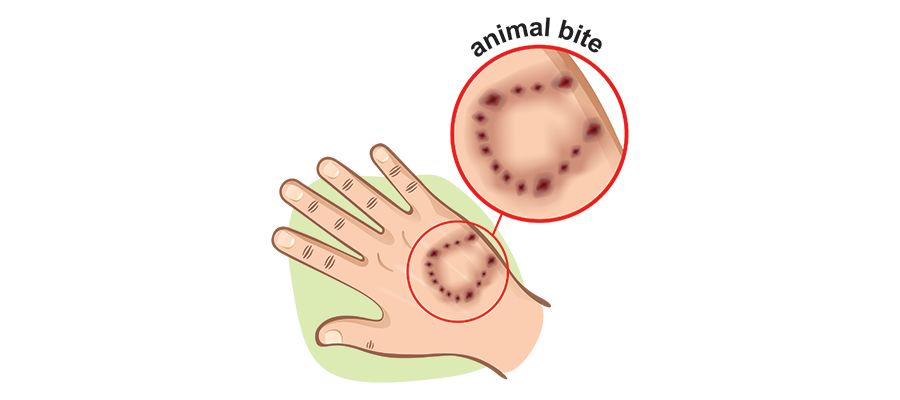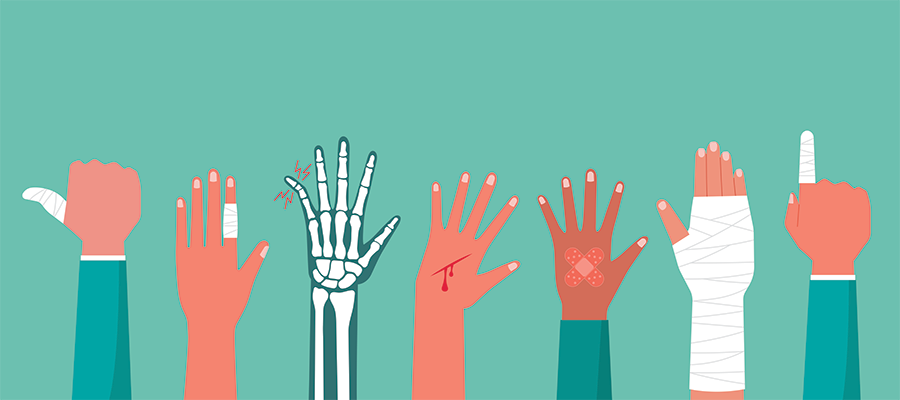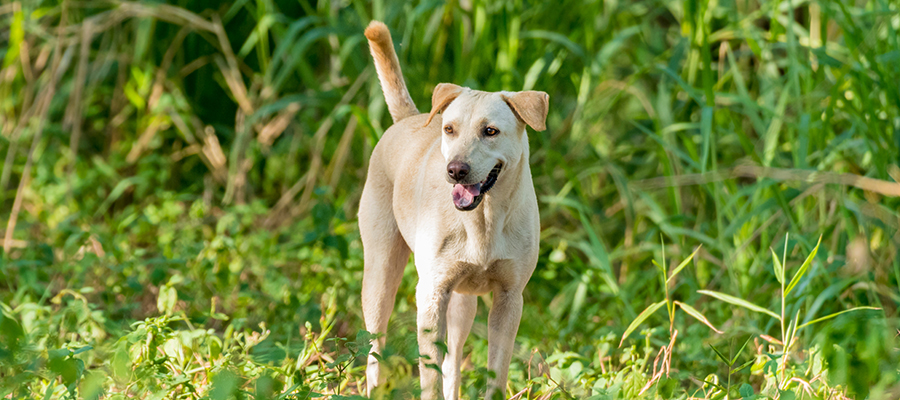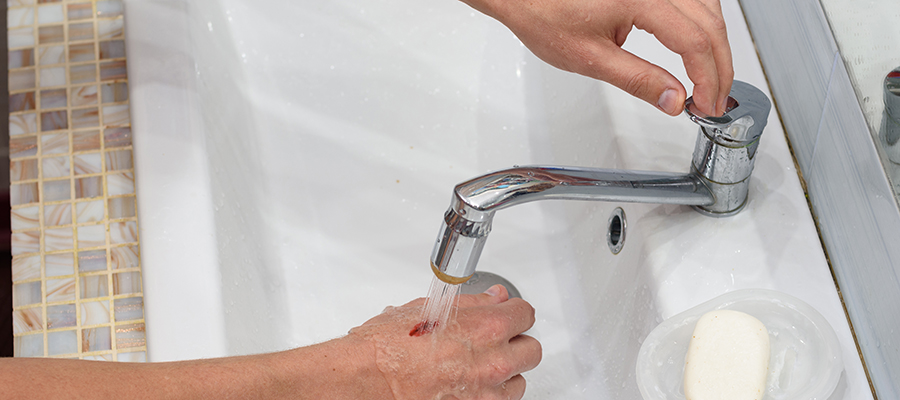Singaporeans love their pets! In January 2022, a survey by Statista showed that 33 per cent of respondents owned at least one pet. The dog population in Singapore in 2019 was 92,000. Almost equal in adoration in Singapore, the cat population was 85,100 in 2019.
Dogs, cats, and other types of pets have sharp teeth and claws to protect themselves. Their basic instincts are to use their teeth. Whether by accident, to protect themselves, or during play, our beloved pets’ teeth can cause bite injury to our comparatively delicate hand structures.

Incidences of animal bites are difficult to estimate and many pet owners may not seek medical attention. The WHO predicts that dog bites account for tens of millions of injuries each year. In the US, approximately 4.5 million people are bitten by dogs annually with over 800,000 seeking medical care, 30,000 having reconstructive procedures, and 3-18 per cent developing an infection. Cat bites come in second, in the US. 400,000 estimated cat bites are causing 66,000 hospital emergency department visits yearly.
Animal bites to the hand can cause serious injury. There is a significant risk of infection due to the combination of sharp teeth tearing or puncturing the skin and the high level of bacteria in the mouths of animals. Prompt initial treatment results in optimal patient outcomes. Early treatment that includes wound cleaning, antibiotic prophylaxis, and repair of damaged tissues has a lower incidence of complications such as osteomyelitis and septic arthritis. Optimal prompt treatment also tends to cost less than untreated injuries with longer-term, more severe outcomes.
Our Furry Friends’ Sharp Teeth
Even the most well-mannered domesticated pet is endowed with sharp teeth. We groom them, play with them, snuggle with them, and consider them part of the family. But most animal bites come from our beloved pets. Everyone can have an off day. Rough play can happen in an instant. Most cat owners know an affectionate belly rub can turn into a piercing assault on our hands and wrists in the blink of an eye. A pampered pup can snap and bite with just one misstep during even careful grooming sessions.

Overview of Pet-related Hand Injuries
Dog bites are the most common type of animal bite, accounting for 60 to 90 per cent of bites. Cat bites only account for 10 to 15 per cent of bites. Most of these are from our pets. Dog bites are very strong and move in a crushing and tearing motion. They can cause skin, muscles, tendons, joints, and bones injury. Cats’ teeth are fine and sharp and can penetrate deep into the skin. Bites that puncture the skin, like those of cat bites, are more likely to cause infection.

Trauma, Puncture Wounds, Infection
Hands and fingers are the most likely areas to be bitten. Due to the complex nature of the structure of our hands, they are most at risk of injury and complications. Trauma from tearing or crushing injuries from animal bites can cause fractured bones, nerve damage, soft tissue injuries, permanent scarring, and a risk of infection.
Puncture wounds, especially but not exclusively from cats, can cause severe infection. Bites near joint spaces can penetrate the joint fluid where infectious bacteria can flourish. Nerve and tendon tunnels are ideal for bacterial growth and infection can travel throughout the area.
Fast action and timely treatment are important because infection of the hand and fingers can cause serious functional disability and pain.

Untreated Long-term Outcomes
Animal bites can lead to infection. They can also lead to diseases such as rabies or tetanus, each requiring long treatments. Cat bites can heal at the skin’s surface quickly, obscuring the developing infection underneath. Nerve, bone, and tissue damage left untreated will result in loss of function. Animal bites can transmit pathogenic microorganisms such as Streptococcus canis, Prevotella spp., Pasteurella spp., and Capnocytophaga canimorsus. These are of particular concern in patients who are immunocompromised.
If the infection is allowed to fester it can lead to septic arthritis, a painful infection of the synovial fluid or joint fluid and joint tissues. Osteomyelitis, swelling, and inflammation of bone, occurs when the infection has spread to the bone. If this infection continues to be left untreated, it can travel to other parts of the body.
Hand Injury Symptoms From Animal Bite
An incident that results in a hand injury from an animal bite will most likely be memorable. We should note, however, that some symptoms may not be immediately noticeable. Breaks in the skin that cause bleeding, severe tissue tears, and deep puncture wounds will be hard to miss. Depending on where the injury takes place on the hand, there may be less bleeding. A crush injury, similarly, may show later with bruising or discolouration of the skin. Animal bites can injure tendons, nerves, or joints. This may be noticeable by decreased motion and function of the affected hand.

Infection From Animal Bite
Signs of infection from animal bites also require immediate attention and treatment. As in other parts of the body, infection is evident with warmth or increased heat at the injury site and surrounding tissues. Redness and swelling, accompanied by pain, will subsequently worsen as the infection increases. A loss of function and mobility can be a sign of injuries to nerves, tissues, and tendons as well as a sign of infection.
How to Avoid Animal Bites
Preventing animal bites from your pets will hopefully happen naturally over time. Puppies explore their world with their mouths. Engage puppies in appropriate training to help them through the biting stage. Wearing gloves when handling puppies and kittens can protect your hands and skin while building a familiar relationship with your young pets. Older pets may have new aches and pains that cause them to react unexpectedly or aggressively. Be careful when handling and playing with older pets to avoid injuring them or yourself.
Avoiding animal bites from unfamiliar or stray animals is equally important. Do not approach strange animals and teach children not to approach them either. Do not provoke or tease strange animals and do not try to catch them. While incredibly rare, stray or wild animals may have rabies. Although Singapore, has been rabies-free since 1953, rabies cases are still reported in neighbouring countries.

Best Practices to Prevent Infection
Infection from an animal bite occurs in 15 per cent of dog bites and 50 per cent of cat bites. For minor wounds, thoroughly wash the wound. Use soap and water to remove any debris or potential infective bacteria. Cover the area with a clean bandage. Clean the wound twice a day.
For serious wounds that are deep or have exposed muscle or bone, washing the wound yourself may not be possible. In this instance, cover the wound with a clean cloth and seek immediate medical attention.

When to Call Your Doctor or Hand Surgeon
A medical professional should assess any bite from an unknown animal that breaks the skin. Seek medical attention for animal bites on the hands that are deep or large. At the first sign of potential infection such as swelling, redness, or pain, call your doctor for assessment and potential antibiotic prophylaxis. A bleeding wound that does not stop bleeding within a few minutes is a signal to call your doctor or hand surgeon. An animal bite to the hand that has exposed muscle or bone needs assessment by a hand surgeon. Furthermore, if there is any loss of function or sensation in the hand or fingers following an animal bite, be sure to contact a hand surgeon.
Treatment For Animal Bites to the Hands and Fingers
Treatment for animal bites includes antibiotics to help slow or stop infection. A doctor will clean the wound to also help avoid infection. A small procedure called debridement will further clean the wound and remove any dead tissue or signs of infection. Bite wounds that involve deep tissue, nerves, bone, and joints, or have an advanced infection may require surgical intervention. Physical therapy and wound care may be employed to promote recovery of hand function and mobility.
Wrap Up
We love our pets in Singapore. No matter how cute and loveable they are, they are not without risk of an animal bite. If an animal bite has injured your hands, contact us at CHARMS. We offer specialized treatment for simple to complicated hand conditions that result from animal bites and infections. Our hand care team provides extensive knowledge and experience for damage to skin, nerves, muscles, and bones requiring microsurgical expertise. At CHARMS, we endeavour to provide the highest level of service and care to ensure your visit with us is a pleasant one, so you can get back to your beloved pets.